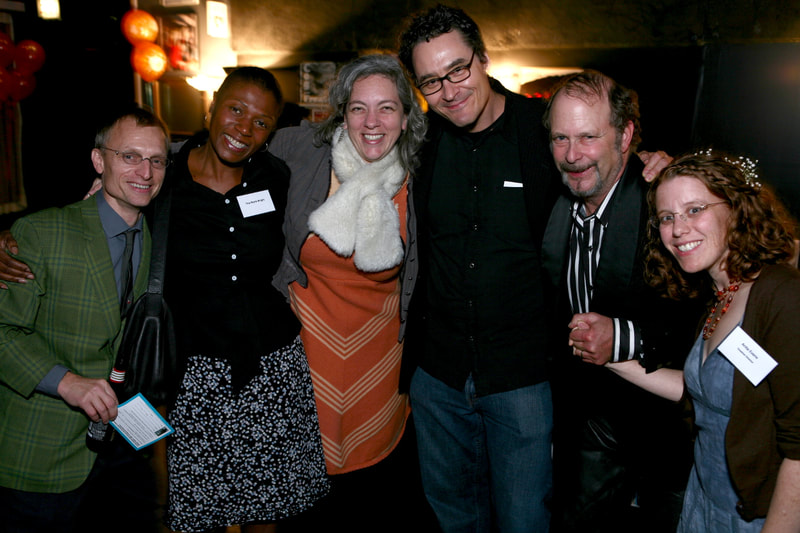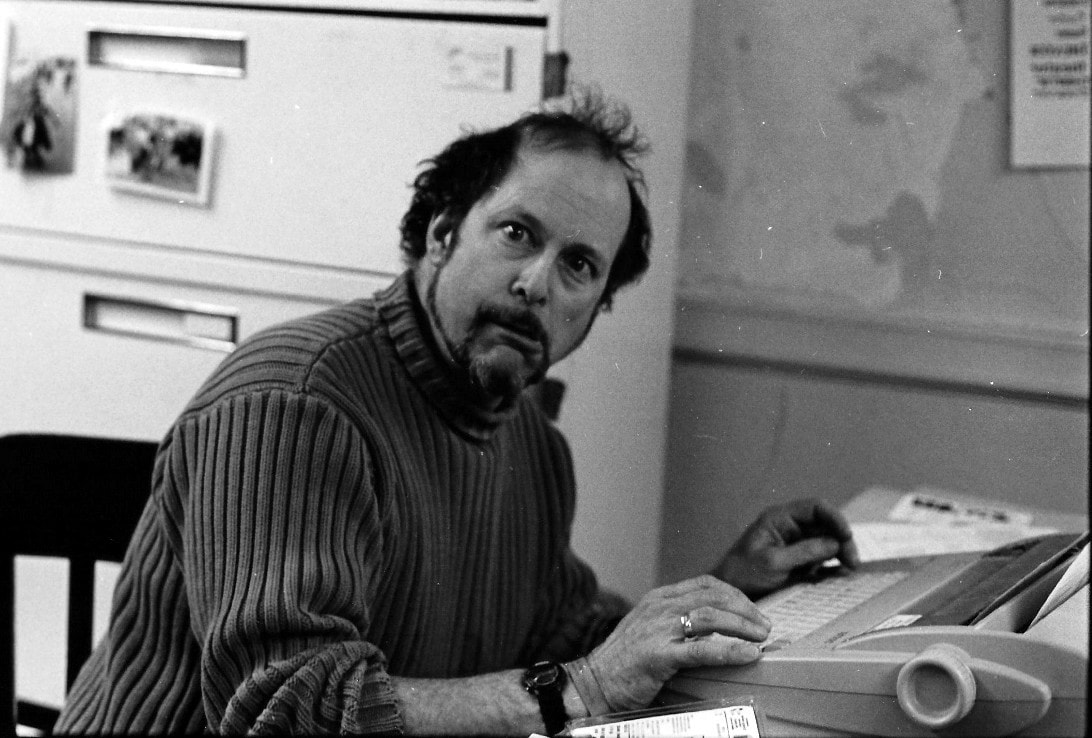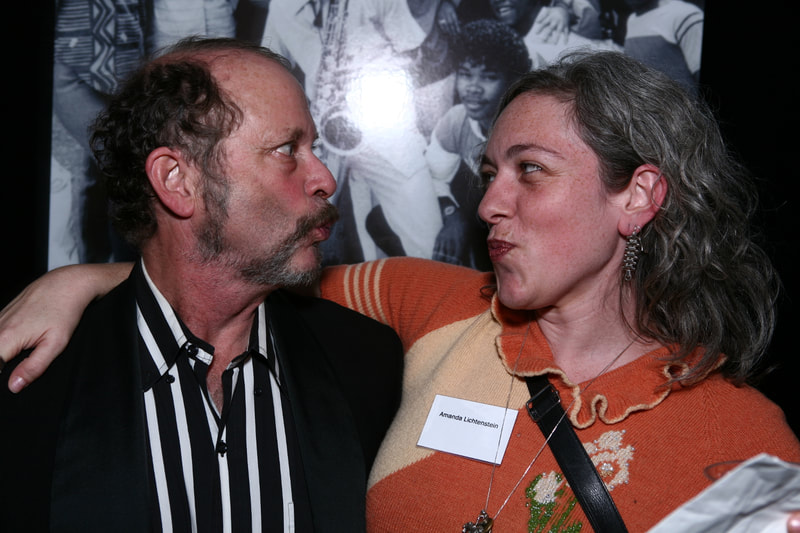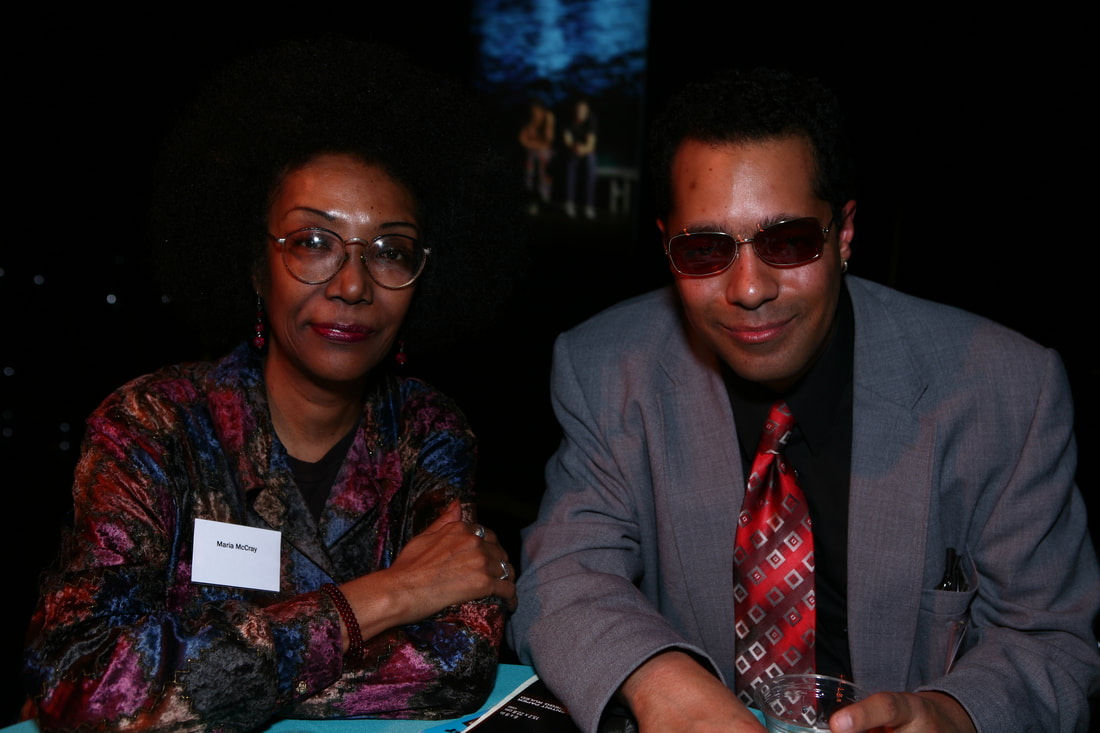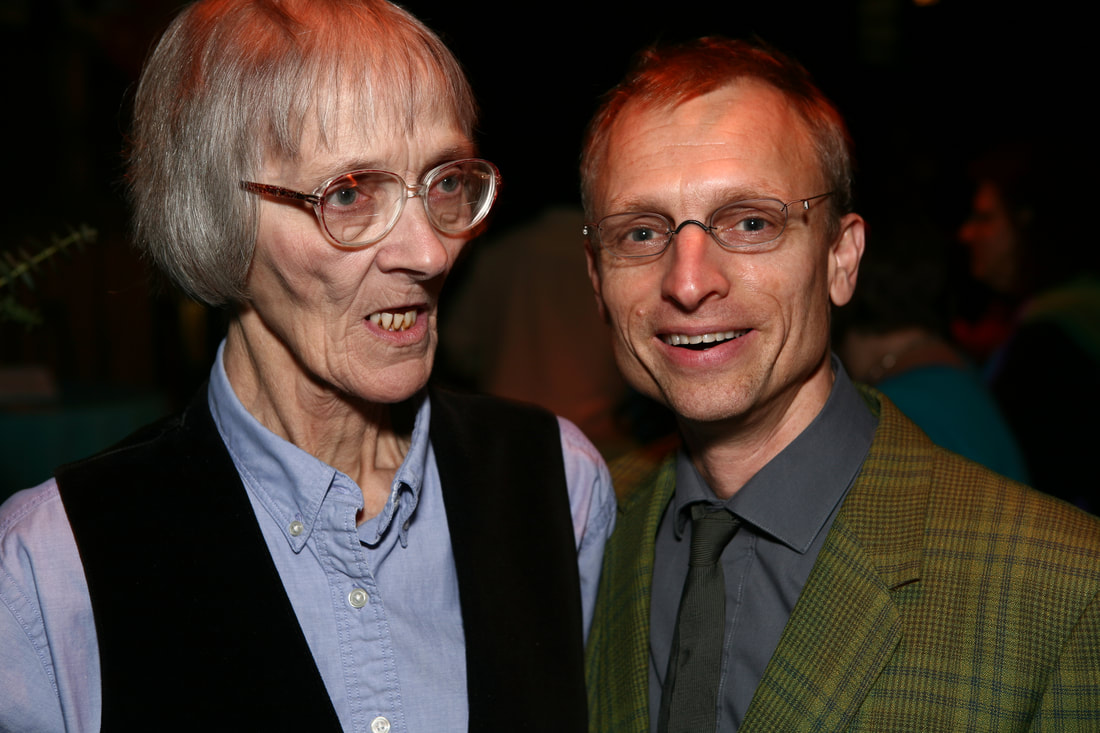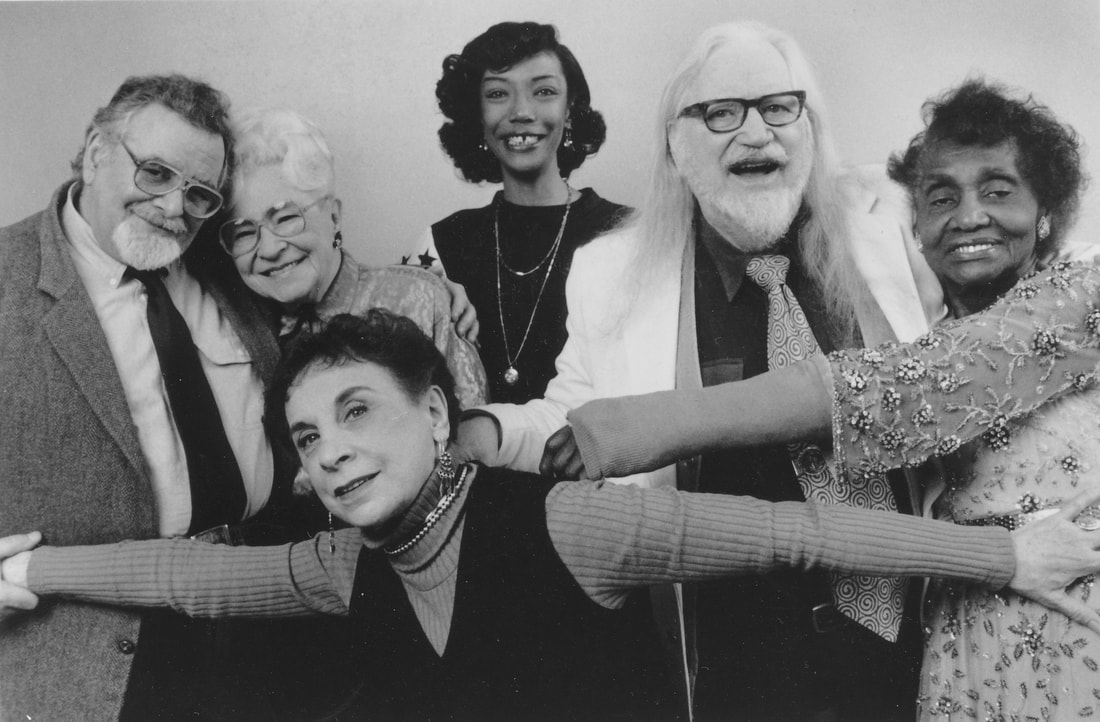Free Street Theater Archive
Archive Home | Performances | Stories | Newsletters | Press | Videos
David Schein
David Schein was the Artistic Director at Free Street from 1991-1995 then Executive Director from 1995 -2003. He guided Free Street back to programmatic acclaim and financial stability after it almost collapsed in the wake of founder Patrick Henry's death in 1989. David helped pioneer a relationship with the Chicago Park District which enabled Free Street to be the first Arts Partner in Residence finding a secure home in exchange for providing free programming in the parks., created what was then a unique opportunity for teens to get a job making theater by seeking funding from the Mayor's Office of Workforce Development, was instrumental in developing the YTCC Youth Theater Coalition of Chicago, forged partnerships with Columbia College, and was always thinking about innovative ways to support new art makers and fund initiatives so it could all happen. He transitioned away from Free Street to become the Executive Director of the Arts Council for Chautauqua County, New York and continue his involvement with the One Love AIDS Education Circus in Awassa, Ethiopia.
(Here's an article about his work with One Love that was written by Free Street alum Joanna Klonsky)
(Here's an article about his work with One Love that was written by Free Street alum Joanna Klonsky)
MY LIFE AT FREE STREET
1990: NYC: The New York Shakespeare Festival was interested in my opera TOKENS: A Play on the Plague and I was jazzed. Joe Papp would produce my show. New York would be my oyster. As it turned out Joe Papp had cancer and was dying. The project didn’t get done. I toured a solo show to Europe and started looking for work. A company in Chicago called Free Street needed an Artistic Director. I applied. Sent scripts and resumes and tons of stuff Didn’t hear back from them so I took a job at the New York Review of Books. It paid nothing but I got to take a leak next to Phillip Roth in the NYRB men’s room and passed Vaclav Havel and Joan Didion in the hallway.
1990: NYC: The New York Shakespeare Festival was interested in my opera TOKENS: A Play on the Plague and I was jazzed. Joe Papp would produce my show. New York would be my oyster. As it turned out Joe Papp had cancer and was dying. The project didn’t get done. I toured a solo show to Europe and started looking for work. A company in Chicago called Free Street needed an Artistic Director. I applied. Sent scripts and resumes and tons of stuff Didn’t hear back from them so I took a job at the New York Review of Books. It paid nothing but I got to take a leak next to Phillip Roth in the NYRB men’s room and passed Vaclav Havel and Joan Didion in the hallway.
|
1991: Free Street contacted me said they had misplaced my file, but now they wanted to interview me and would fly me to Chicago. Had an interview in Carol Sherer’s beautiful apartment North of the Loop. Carol was a prominent and gracious Chicagoan, had been an Ambassador’s wife. Then to Free Street which was lodged in the former Maniscalco funeral home on North Ave. right where Old Town stopped and Cabrini-Green began. Met the three people who were sharing the role of Artistic Director, Donald Douglass, Doug Lofstrom and Tricia Alexander. Also a young artist from Wisconsin named Ron Bieganski who was teaching for for Free Street and who shared my roots in physical theater. And Maria McCray a writer and actress who lived in notorious project, Cabrini-Green and had toured with her children to London in the famous musical PROJECT!, that Patrick Henry had developed. Met her kids and some other kids from Cabrini who had gone to London with PROJECT! and who wanted to make theater.
|
I got the job, The first night there I slept in the funeral parlor to make a deal with the ghost of Patrick Henry not to haunt me. The Executive Director, Carol greeted me with the news that she would be moving to Memphis in three weeks. There was no other Executive Director in line, besides, there wasn’t money left for a salary, the Board had blown in all on flying in people for interviews. I asked the Board about the financial situation. They said the staff had misappropriated $200,000. I asked the staff about that. They said the Board owed them $200,000. I said let’s call it even. I went to Oprah Winfrey who was just starting Harpo Productions and getting famous from her TV show. I had met her on the set of the Color Purple, where I was hanging out with my friend Whoopi. She gave me $40,000 to get Free Street going. again. Oprah. That’s why Free Street didn’t close.
|
Behind my office was the office of Rilla Bergman, the ‘Bookkeeper” who had been with Patrick Henry and the company for twenty years. Her office was desks and tables of teetering piles of spreadsheets and binders and ancient bills. Scary. But as it turned out Rilla was the memory and brains of the organization and another “only reason” that Free Street survived. Rilla and Oprah. Thank you.
I had no experience in community theater and in working in “minority” communities, other than the “minority” of artists who worshiped Artaud and Sun Ra. I was an ‘avant garde” writer and theater performer and composer who had somehow written cartoon development for Hanna Barbera, worked with Whoopi Goldberg (which is probably why I got the job,) made NPR shows in Tijuana and toured Europe doing solo work and crazy ensemble shows. And here I was (supposedly} at the helm of a theater famous for building shows in “communities and pioneering multiracial casts and performing (sometimes to gunfire) in the streets in the toughest neighborhoods in Chicago. A theater with a mighty legacy and an empty bank account with a staff that was jumping ship. |
Maria and her friends invited me to a party in “Jewtown” which is what Black folks used to call Maxwell Street. Holy shit this must be my town thought this Jewish boy from Vermont. Welcome to Chicago. How else would I ever get here except for my membership in the Universal World of making Art. Thank you Goddess I thought. I’ve got so much to learn. and now I’m getting paid to go to school. If I raise the money the keys to the City are open. What a privilege. Scary.
|
Meanwhile everyone from Free Street’s first 20 years came to check the new guy out to see if there was work. There wasn’t. There was no money to take PROJECT! on the road nor to renovate the rusting Showmobile. Someone (a strung-out former actor) stole $500 cash from my wallet. I chased them down the street but they got away. The members of the Senior Theater Company wanted to rehearse and they won my heart and so we began to rehearse their show in the little theater which had been the mortuary viewing room Doug Lofstrom had an idea attached to funding, to make a show about the history of Jazz in Chicago and with the little money we had, we hired some of Chicago’s greatest jazz musicians and made a show about the jazz legacy of the South side. We performed it a jazz club called Spices on Chicago and Halsted and took it on the road.
|
Meanwhile I wanted to use the little theater downstairs in the mortuary to showcase new work and do workshops. We established a weekly forum where different artists led workshops for other artists. We started producing shows: I had a solo show Out Comes Butch which I had performed with Whoopi on tour out West and in Europe. My wife Dana Block did a show about a cow who escapes from the slaughterhouse and wrecks a bakery. Tanya White had a show, Smokin’ that she performed in the nude. Ron Bieganski was an interesting and physical actor so I directed him in my friend Jim Nisbet’s two short plays. So as we were gathering force to revitalize Free Street’s community programs, which I really didn’t know how to do, we were making crazy art. That was familiar territory. But what did it have to do with Free Street.
Before departing (escaping?) Free Street Exec Director Carol left she asked me: So what are you going to do here? I want to write some grants before I leave. I said let me think about it. Scratched some stuff in my notebook: Here’s what I came up with:
Mission: To make theater with underserved people and to bring theater to people who didn’t go to theater.
Who were the most artistically underserved in Chicago?
Pregnant and Parenting Teens,
Low income teenagers and Children
People in Hospitals
Seniors
Out of this came the four programs we concentrated on for the next 12 years.
TeenStreet
Parenteen Theater
Clown Doctors, which became Arts Connect
Arts Literacy
Then the Rodney King Riots put everything in perspective. They really helped us out .
To be continued. . . .
- David Schein
(written December 2018)
David is "another “only reason” that Free Street survived" person. Thank you.
Before departing (escaping?) Free Street Exec Director Carol left she asked me: So what are you going to do here? I want to write some grants before I leave. I said let me think about it. Scratched some stuff in my notebook: Here’s what I came up with:
Mission: To make theater with underserved people and to bring theater to people who didn’t go to theater.
Who were the most artistically underserved in Chicago?
Pregnant and Parenting Teens,
Low income teenagers and Children
People in Hospitals
Seniors
Out of this came the four programs we concentrated on for the next 12 years.
TeenStreet
Parenteen Theater
Clown Doctors, which became Arts Connect
Arts Literacy
Then the Rodney King Riots put everything in perspective. They really helped us out .
To be continued. . . .
- David Schein
(written December 2018)
David is "another “only reason” that Free Street survived" person. Thank you.

